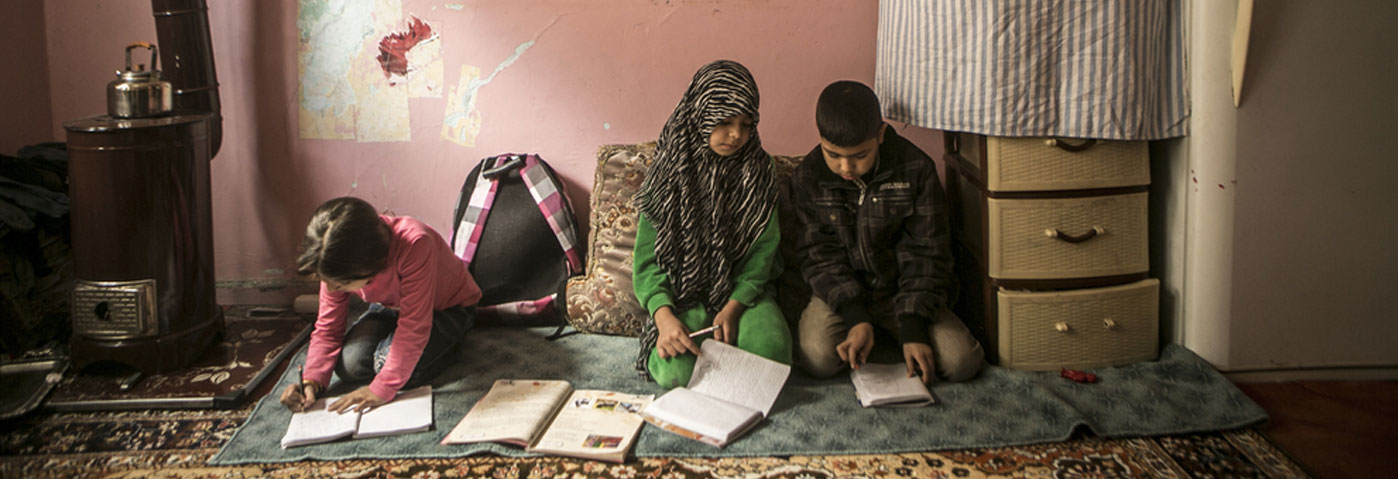A couple of years ago I wrote a blog for this site reporting on inspirational tourism industry initiatives responding to the refugee crisis. My aim was to show “how tourism is especially able to help not just thanks to well-meaning individuals, but because of its structure. It is built up of travel networks, accommodation providers, storytellers. And at heart, it is an industry based on providing a welcome for foreigners.”
For that first blog, I was able to find a few stories worth sharing. I wrote about how Migrantour employs refugees and other migrants as guides to European cities. And how Magdas Hotel in Vienna employs refugees and asylum seekers and also leaves two of its suites free for young asylum seekers alone in Austria without their families.
Last year, global leaders agreed to work towards a Global Compact for refugees in 2018 where all parts of society stand together #WithRefugees and do our fair share. As today, June 20 is World Refugee Day, I am revisiting the topic, to see what else has happened in tourism since my first post.
Earlier this month Airbnb launched Open Homes, a spinoff of its homesharing platform that is designed to make it easier for people to provide accommodation for refugees and other displaced peoples, with the price set at zero and Airbnb collecting no fees. The company is working with a growing number of relief organisations and nonprofits to provide this service. So far they include SINGA Quebec, Inland Refugee Society of British Columbia, Kinbrace, Singa France, Refugiés Bienvenue, Elan Samusocial and SolidarityNow.
Airbnb may be the biggest name in homesharing, but there are several other smaller organisations offering similar services – such as the UK-based Refugees at Home; and the Berlin-based but operating in many locations worldwide, Refugees Welcome.
Having announced that at least $5 million from its TripAdvisor Charitable Foundation would be used to aid the refugee crisis over the next 3 years, Tripadvisor has – along with Google and Microsoft – supported The International Rescue Committee (IRC) in developing refugee.info. With a team of information specialists based in Athens, Belgrade, Paris and Berlin, refugee.info answers refugees’ questions and provides information on every available service to them. Usable on and offline, and demanding little bandwidth, it provides a low cost and essential service.
Beyond the travel tech sector, other accommodation providers have been opening their doors. Starwood has been commended by the IRC for employing newly resettled refugees in 19 cities, and for starting a hospitality program to train more. Motel One is rolling out a refugee integration project providing pre-apprenticeship work placement at several of its hotels in Germany. And according to Business in the Community, the Hilton Munich has allocated unused accommodation to welcome refugees, while also providing monthly professional training in areas such as cooking, cleaning and job skills and establishing a “Buddy” programme for Team Members to help the young people get to discover and integrate into Munich. Meanwhile, the Hilton Milan is supporting Farsi Prossimo, a local social cooperative that supports migrants finding accommodation, training, and employment. The hotel offers work experience, cooking training sessions to the migrants and business skills coaching to Farsi Prossimo.
Elsewhere in Italy, a government scheme has established two hotels specifically to address the crisis. In 2014 empty buildings on a former cattle farm were restored and opened as Villaggio La Brocchi, which now serves as home to 38 refugee families. Meanwhile paying guests stay in dorms and B&B on site. The interiors are decorated with furnishings made by the refugees, locals provide them with language lessons. And the refugees provide Syrian and Ethiopian cooking classes to local women.
Perhaps the most remarkable story, however, comes from Greece, where in the spring of 2016 hotelier Andreas Vasileiou completely turned over his family-run, seaside hotel on Greece’s second-largest island of Evia to house refugees and asylum seekers. Responding to a call by the UN Refugee Agency (UNHCR) for Greek hotels to host refugees as part of a programme funded by the European Commission, his hotel now provides a temporary home for up to 88 asylum-seekers from Syria, Iraq, Eritrea and elsewhere.
More than that, he has used the hotel to create a mutually supportive environment with the local community. By turning his business model on its head, the hotel and its new guests have upended many preconceptions. Refugees living there have set up a stand giving away Syrian food to local residents. Elsewhere some of the refugee children volunteered to paint a mural on the village’s school wall.
According to the UNHCR: “He’s created a collective environment where refugees, hotel staff and locals in nearby Rovies village can eat, work and live all together – and learn from each other. At Hotel Rovies, instructors hired through the accommodation programme teach refugees theatre skills and swimming at the beach just outside. Refugee women cook their traditional meals in the bustling collective kitchen, while the reception-area TV blares Arabic channels. Children attend classes in German, English and French, taught by Greek teachers as well as fellow refugees. The community they have built is an example of solidarity in action.”
In centuries past, networks of inns and hotels provide beds for pilgrims and refugees fleeing religious persecution across Europe. In the coming decades, it is inevitable that climate change will cause the numbers of refugees and migrants to rise. Reinvigorating the role of hospitality will therefore be central to defining our future too.


